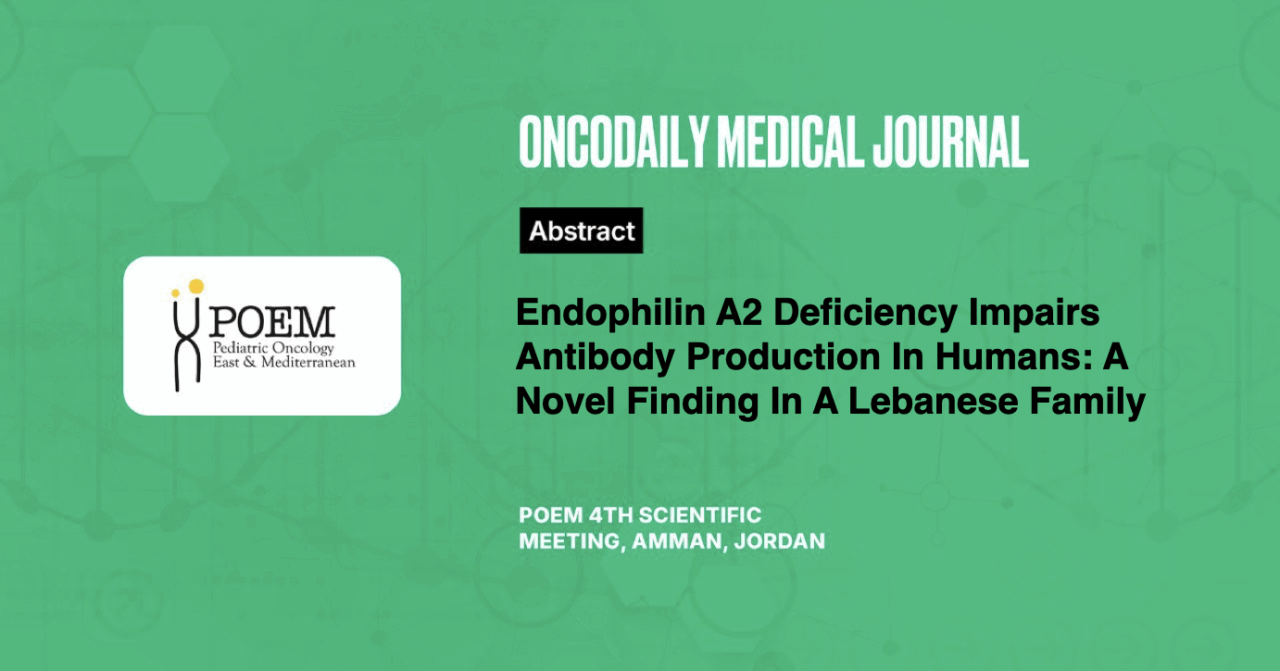Endophilin A2 Deficiency Impairs Antibody Production In Humans: A Novel Finding In A Lebanese Family
Abstract
Introduction: We report our novel finding on a 14-year-old boy with predominantly antibody deficiency. The patient, who is issued from a consanguineous Lebanese family, presents since the age of 18 months with recurrent respiratory tract infections, pan-hypogammaglobulinemia and low peripheral B cell counts, with no history of opportunistic infections. He was found to have a homozygous frameshift variant in the SH3GL1 gene (NM_003025.3:c.427delC;p.Leu143Serfs*9), detected by whole exome sequencing in our genetics department at LAU Medical Center Rizk Hospital in Beirut. Both parents are heterozygous and phenotypically normal.
Results: The detected variant in SH3GL1 codes for Endophilin A2. Endophilin A2, the sole endophilin A family member expressed in hematopoietic cells, regulates various aspects of membrane dynamics, including autophagy and endocytosis. Recent studies in rodents highlight the essential role of endophilin A2 in modulating immune responses. Interestingly, endophilin A2-deficient Sh3gl1-/- mice have been reported to present defects in germinal center B cell responses and in the production of high-affinity IgG.
Expression of the protein in the patient’s peripheral blood compared to healthy controls confirmed its pathogenicity and segregated well with the disease in the family. This defect is associated with decrease in switched memory B cells development, impaired in-vitro B cell proliferation and diminished in-vitro IgG production.
Conclusion: Our data suggests that Endophilin A2 deficiency impairs antibody production in humans. Reporting further cases with mutations in SH3GL1 is needed to better characterize the inborn error of immunity linked to this gene.





